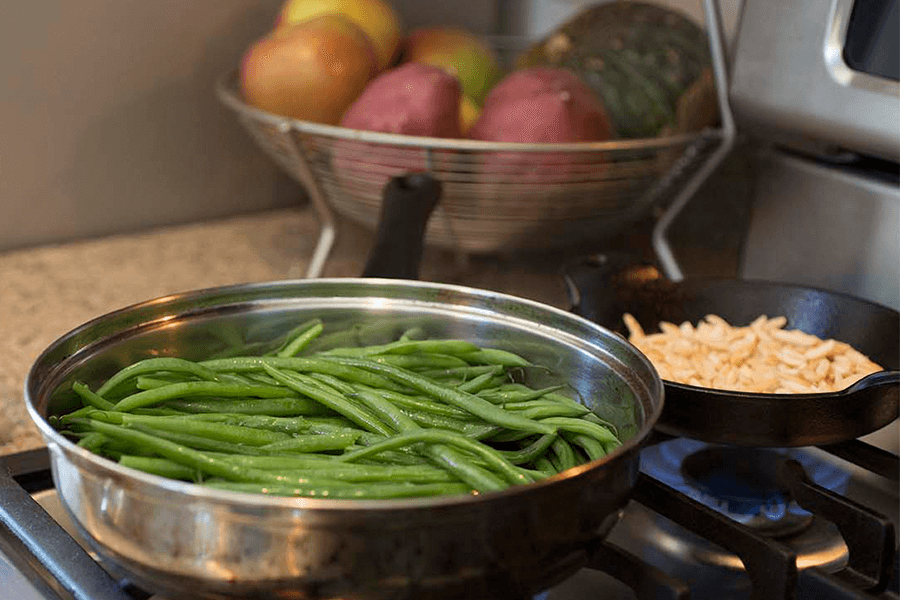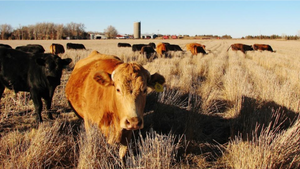EPIC has been focused on meat production and consumption for many reasons. For one, our co-founders found that transitioning from a vegan to paleo-based diet was the most significant key to restoring their health. Since then, we have become enthralled by the way that animals help restore the land through their natural behaviors. This is especially true of ruminant animals, whose hooves promote soil health, water retention, and carbon sequestration.
Animals are a part of a much larger ecosystem that also includes plants and soil microorganisms. Accordingly, regenerative agriculture goes far beyond how we are managing animals. We must also grow crops in a way that restores the soil health, especially since the consumption of grains is so prevalent today.
According to the United Nations, 20% of calories consumed by humans come from wheat. Wheat, rice, and corn together make up over 50% of global plant-derived calories. Putting aside arguments surrounding the nutritional value of these crops, people clearly need more variety in their diets. With two billion people obese and another two billion nutrient-deficient, we need to seek diets that better promote overall health.
Furthermore, the environment is deteriorating under heavy monocrop production. U.S. farmers alone grow 50 million acres of wheat. Corn and soybeans take up another 163.5 million acres of U.S. soil. So as our population grows along with grain and soy consumption, how can we continue growing crops in a way that better supports human and environmental health?
 Rows of perennial Kernza being grown alongside grazing cattle, which allows the crops to benefit from animal impact - photo from The Land Institute
Rows of perennial Kernza being grown alongside grazing cattle, which allows the crops to benefit from animal impact - photo from The Land Institute
First off, we need to diversify the crops we are growing. By growing perennial grains like Kernza, we can improve soil health. Unlike annual crops like wheat, corn, and soy, perennials do not need to be replanted and reseeded year after year. This allows for less soil disruption and tilling. Furthermore, their roots grow deeper and stronger, which means they can sequester more carbon from the atmosphere. Companies like Patagonia Provisions and Cascadian Farm are already working to commercialize the perennial grain Kernza.
Other ways we can grow crops more regeneratively include using conservation tillage, composting, and cover crops. Perhaps most important is the inclusion some animal impact on every farm – regardless of that farm’s primary purpose. Animals provide powerful natural fertilizer and soil aeration to the land, which produce healthier crops with less need for synthetic inputs. Rotational grazing of ruminant animals enhances this impact. Our friends at Annie’s are working with regenerative wheat and oat farmers in Montana that implement these practices.
The lack of variety of plant foods in our diets is just as concerning as the inclusion of factory farmed animals. Not only is the focus on a few nutrient-poor, monocropped plant foods damaging to the land, but it’s also contributing to the obesity and disease epidemics we face today.

If you’re interested in supporting regenerative crop farming, start by avoiding conventional wheat, corn, and soy. Instead, head to your local farmer’s market and pick fresh fruit and vegetables grown on farms with a variety of crops (and likely animals, too!). If you include grains and beans in your diet, this is the place to get them! They will be much more nutritious and flavorful than anything you can find at the grocery store.
When you do opt for the grocery store, prioritize organic to avoid GMOs and pesticides. Limit water-intensive crops like almonds, pistachios, and rice. Also, bring your own reusable produce bags to limit plastic! Finally, cooking at home is a great first step in bringing more consistent awareness to the type of food production you are supporting.
We know you already think about the impact of the animal foods you consume, and we encourage you to start thinking about plant foods similarly. How are they contributing to your health as well as that of the planet? Get curious about how and where they are grown. We are thrilled where this regenerative movement can take us, and we don’t want it to stop at ranching.



